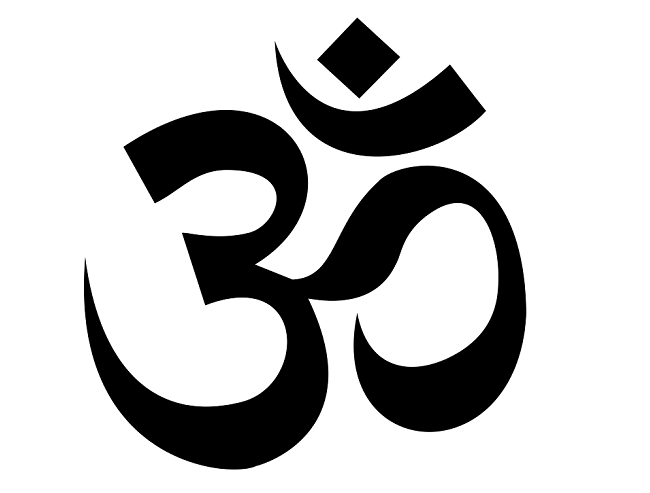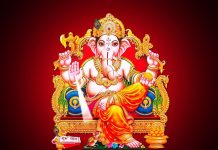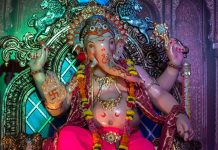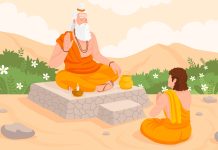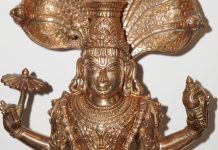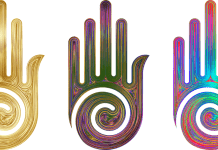One of the oldest religions, Hinduism has a legend of more than 5,000 years. We have a lot to know about Hinduism, the sacred religion. What are they? Do you know what we need to know about Hinduism?
Hinduism is an Indian religion. Although Hinduism is known as the oldest religion in the world, many seekers refer to their religion as Santana Dharma. Modern usage, as revealed in The Hindu texts, is said to have its origin as an idea that goes beyond human history. As a religion, it has the third largest followers in the world. What do you need to know about Hinduism? You must know these things about Hinduism.
Hinduism is at least 5000 years old
Hinduism is one of the few ancient religions that have survived in modern times. The collection of traditions that make up modern Hinduism began with the Indus Civilization and developed in the largest civilization of the ancient world over at least the last 5000 years. Hinduism has no ‘founder’, nor does it have an early guru. As the name suggests, ‘Hindu’ refers to the people living beyond the Indus River. It is a term used by Persians as early as the 6th century BC. In the beginning it did not have a specific religious meaning. The religious meaning of the word had not developed for approximately 1000 years.
The Vedas are one of the many primary religious texts of Hinduism
Hinduism does not have a single holy book that guides religious practice. On the contrary, Hinduism has a large collection of spiritual texts that guide the devotees. The first of these was the Vedas, in which Hindu philosophy was further developed in the Upanishads. This philosophy is reiterated in the Puranas, Ramayana, Mahabharata and Bhagavad Gita. Countless life stories, devotional poems, commentaries by sages and scholars have contributed to the spiritual understanding and practice of the Hindus.
Hinduism is one of the four ‘religious’ or ‘Indica’ traditions
Hinduism, Buddhism, Jainism and Sikhism can be referred to as “religious” or “Indica” traditions. Dharma traditions broadly share a similar worldview and share many spiritual concepts such as dharma, karma, samsara and moksha. Yet each religion interprets them differently.
Hinduism sees divinity in all existence
The only deepest spiritual truth presented through the Vedas is Brahman. He who pervades the whole universe. This divine reality, or its essential nature, is eternal and blissful in all beings. Brahma is said to be the cause of creation.
The nature of The Supreme Soul is interpreted in different ways in different genealogies
Within Hinduism there is a wide range of understandings about the nature of Brahman. Some Hindus believe that Brahman is infinite and impersonal and worship him as such or in various forms. Other Hindus believe that the deity has an infinite and mystical form. For example, some Vaishnavas believe that the supreme form is Krishna, while the Shaivites call this form Shiva. Thus diversity in forms can be seen.
Hinduism worships God in the form of male and female, animals
Hindus believe that Brahman can take form, they agree that there are different ways in which all human beings can connect with God. This universal divinity is worshipped in both male and female forms. The female form is called devi, which is an expression of energy. Other forms combine male and female elements together and some resemble animals such as Hanuman. Each of these forms has a symbolic meaning. Hindus have long told stories about these various forms of divinity to inspire devotion and inculcate moral values.
Hindus pray to different aspects of God
Hindus pray to various forms of Brahman as an expression of certain divine qualities or powers. For example: Lord Ganesha is worshipped by Hindus as a trouble reliever and respected for his great wisdom and worship is offered to him before starting any major task or project. Saraswati is the Goddess associated with learning and wisdom; Lakshmi is worshipped as the Goddess of prosperity. It is believed that God took the human form of Rama to show people how to live in the path of dharma. It is said that Krishna has come to eradicate evil and protect the good. Lord Shiva is worshipped as lord of time and change.
Hindus use pictures in worship
The sacred images, known as murti by the Hindus, represent the various forms of God. An idol can be made of wood, stone, or metals. The idol offers a way to visualize and meditate on Brahman, which is believed to be beyond the comprehension of the human mind due to its infinite nature. The idol is often mistranslated as ‘idol’ but the more accurate translation is ’embodiment’. Hindu families perform their daily puja in the puja room of the house and in temples on special occasions. Many Hindus approach gurus for advice or answers to spiritual questions.
An overview of the Self in Hindus
Hindus believe that the soul is eternal. When the physical body dies, the soul is reincarnated in another body. This continuous cycle of life, death and rebirth is called samsara. Rebirth is governed by karma. The principle is that it has a result such as cause and effect. What a person experiences in this life are the result of their past actions, the actions they have already done in this life or the actions of the previous life that come into account.
Hindus believe that there are four goals in life
Hindus believe that we have four goals in life: Dharma (to treat ourselves in a way conducive to spiritual progress), Artha (the pursuit of material prosperity), Kama (bliss of the material world), and Moksha (liberation from attachments resulting from dependence).
There are four paths to salvation
The Hindu scripture describes the four primary ways to experience God’s presence and finally attain the fourth goal of salvation. These paths are not mutually exclusive and can be followed simultaneously depending on the person’s inclination. These methods are: Karma Yoga (selflessly performing duties), Bhakti Yoga (loving God through devotion and service), Jnana Yoga (studying and thinking of sacred scriptures), and Raja Yoga (physically preparing the body and mind to allow deep meditation and introspection).
Hinduism acknowledges the potential for truth in other religions
Hinduism is a deeply pluralistic tradition, promoting respect for other religions and acknowledging the potential of truth in them. The basic principle of Hinduism is the search for truth and not the particular way. The reference to the Vedas, which summarizes the Hindu view is, “The truth is the same; It is that the wise call it by various names”.

























